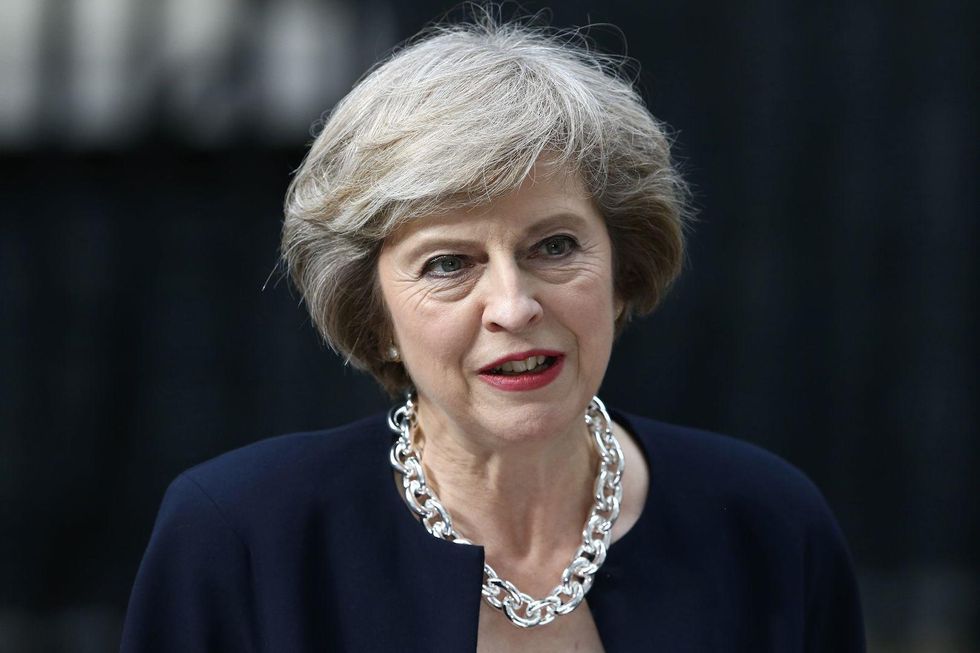
Britain's Prime Minister Theresa May speaks outside 10 Downing Street in central London on July 13, 2016. (Justin Tallis/AFP/Getty Images)

The Russians aren't shy about using propaganda, so it's not surprising they've taken to Twitter to try to influence the way Americans feel about the relationship between the U.S. and her ally, Great Britain.
And they're using a symbol that became associated with white nationalism in the waning days of the 2016 election to do it: Pepe the Frog.
Their goal here is to try to convince sympathetic Americans that British Prime Minister Theresa May should not intervene to try and stop the thaw in U.S.-Russia relations. This isn't unusual or surprising following the intelligence report on allegations of Russia's development of an "influence campaign" during the 2016 election to undermine Hillary Clinton.
Russia has long had a reputation for being talented in the spread of disinformation. With the advent of social media, the propaganda game has become easier to play, with disinformation quicker to spread through sharing online and propaganda — and therefore easier to promulgate. The Rand Corporation calls social media a "boon for propagandists," and the Russian embassy in the U.S. is capitalizing on this using one of the most popular social media platforms, Twitter.
What will be possibly surprising to some is that they're using Pepe the Frog to do it, a symbol that has become associated with White Nationalism and was used extensively by the seedier elements of President-elect Donald Trump's constituency to troll and harass those critical of his campaign.
It may seem shocking that Russia would choose a symbol so overtly connected to Donald Trump, and particularly his least savory supporters, given the denial from Kremlin-financed international news channel RT that Russia was involved in hacking using their media outlet. But Russia has been in the propaganda game a long time, and likely knows when to deny. Here in the United States, for example, The Wall Street Journal reports that RT (formerly Russia Today) was actually named in the intelligence briefing as contributing to the effort to cast Clinton in a negative light.
The report said RT, the network formerly known as Russia Today, along with Russian state news outlet Sputnik, consistently reported positively on President-elect Donald Trump and negatively on Democratic candidate Hillary Clinton.
The Rand Corporation notes that RT spends over $300 million per year on its programming.